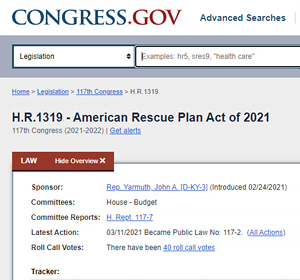Employment trends expert Rob Wilson discusses Biden’s Rescue Plan and what it means for companies
 President Biden’s ‘American Rescue Plan’ includes several key changes to employment-related categories. It’s crucial for employers to become educated about how these changes will impact their policies moving forward.
President Biden’s ‘American Rescue Plan’ includes several key changes to employment-related categories. It’s crucial for employers to become educated about how these changes will impact their policies moving forward.
“Now is the time that employers should prepare for these upcoming changes,” says Rob Wilson, President of Employco USA and employment trends expert. “There are many modifications to the FFRCA ‘COVID Pay’ categories which will impact the way that you reimburse employees and approach things like sick leave.”
First, says Wilson, is the fact that employers now have the ability to offer employees paid leave through September 30, 2021.
“Employers who voluntarily continue to provide this paid leave to their staff will continue to be able to obtain tax credits for doing so,” he notes. “As long as employees are out of the office or unable to work due to COVID-related reasons, employers can offer them up to 14 weeks of paid leave and then be reimbursed via tax credit for the cost of doing so.”
And starting on April 1, the American Rescue Plan Act restored 10-day ‘leave banks’ giving workers 10 days of emergency paid sick leave to use for COVID-related reasons.
“Most importantly, workers can now use their EPSL for things like getting the vaccine or recovering from adverse reactions to the vaccine,” says Wilson. “It would be good for employers to reach out and let their staff know they can use their sick leave for vaccine-related reasons because it can help to encourage vaccine compliance.”
Wilson also says the ARPA includes several Employee Retention credits to help encourage employers to keep workers on staff.
“This program helps support businesses who keep employees on payroll,” says the employment trends expert. “Refundable tax credits have been extended through December 31, with a maximum of $7,000 credit per employee per quarter, for a total of $28,000 per employee in 2021.”
And Wilson notes that there are other state-specific changes in places like Illinois.
“Governor Pritzker’s recent signing of SB1480 includes making it unlawful to discriminate against potential hires due to their past criminal record,” says Wilson. “In addition, Illinois employees with 100 or more employees will now be required to report their pay data based on gender, race, and ethnicity. Employers need to demonstrate their equal pay and employment efforts to the Secretary of State.”
For more on this topic, please contact Rob Wilson at rwilson@thewilsoncompanies.com.